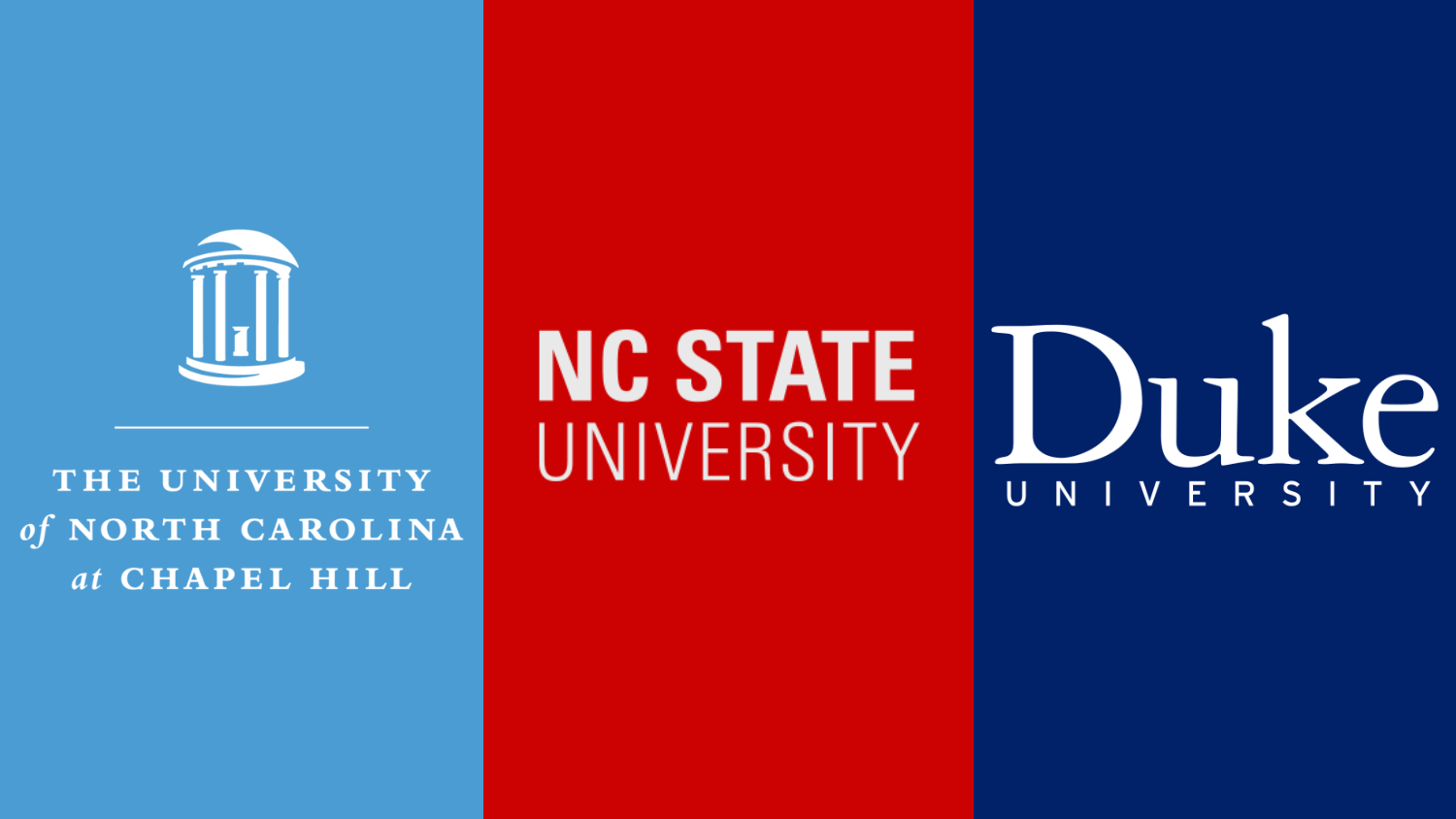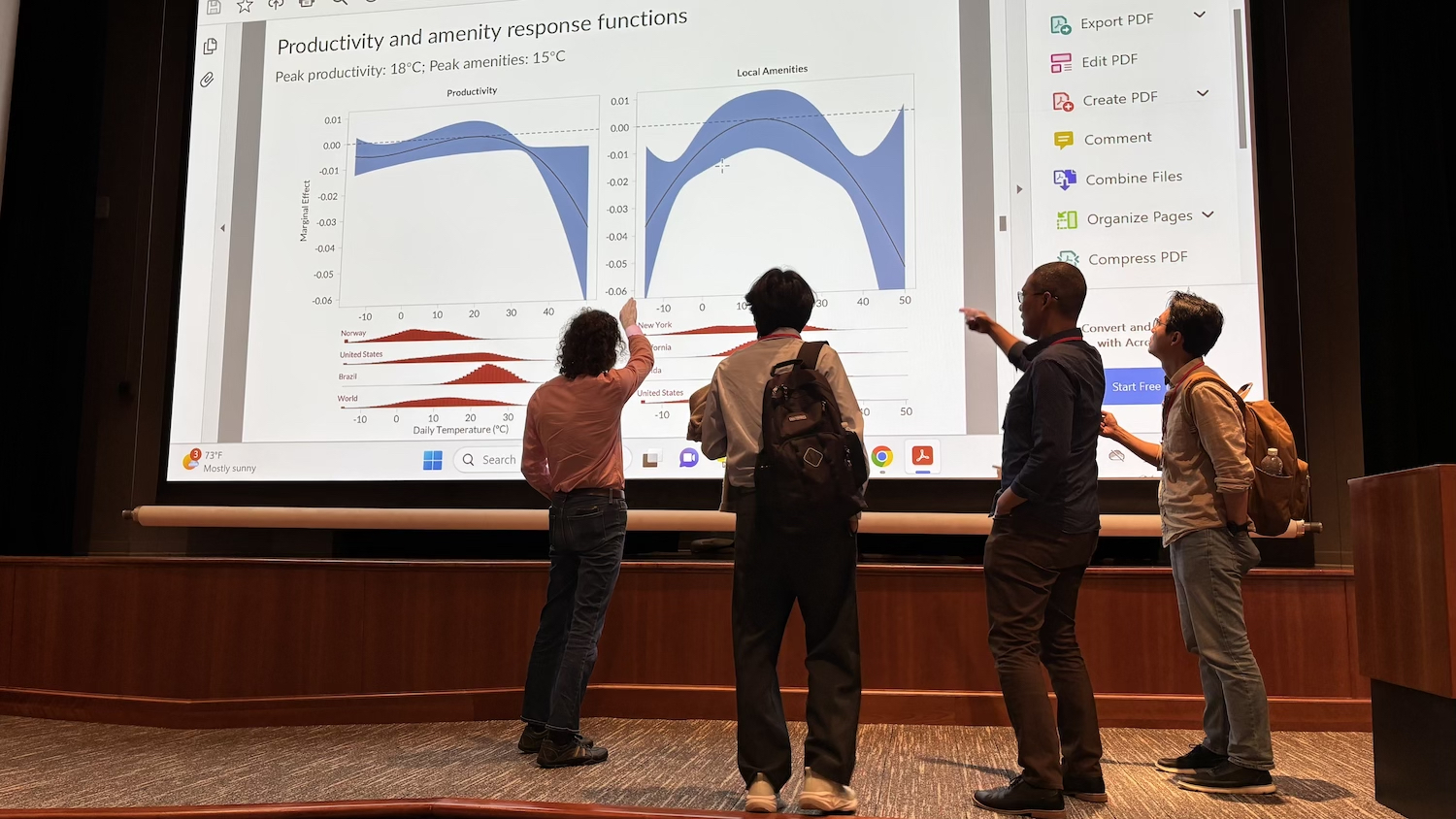With three Tier One research universities, the Triangle area of North Carolina serves as a hub for world-class research, innovation and scholarship. So, when Luca David Opromolla joined NC State’s Poole College of Management in October 2021, he looked for opportunities to grow the university’s field of international economics by collaborating with neighboring Duke University and the University of North Carolina at Chapel Hill (UNC).
“NC State has a lot of interest in developing this field by drawing on the university’s historic strengths, such as entrepreneurship, engineering and agriculture – and when I arrived at Poole College, I thought it would be beneficial to leverage the Triangle area’s strengths as well. I already knew some researchers in international economics at Duke and UNC, so I had the idea to strengthen ties with these two great institutions and to jointly organize a seminar series with them,” Opromolla explains.
The idea was a hit – and in April 2022, Opromolla launched the Devils and Wolves International Economics Seminar Series alongside Rafael Dix-Carneiro, associate professor of economics at Duke University, Can Tian, assistant professor of economics at UNC and Daniel Yi Xu, professor of economics at Duke University.
Strength in numbers
In coming together, the universities are able to share resources and bring high-quality research in international economics to the Triangle.
“Rafael, Daniel, Can and I have slightly different profiles and areas of focus, so cooperating together allows us to attract the top speakers in our field. It’s a lot like comparative advantage in international economics. When two countries are open to trading and exchanging with one another, both countries benefit. NC State has a comparative advantage in a number of areas, whereas Duke and UNC have a comparative advantage in other areas. Together, we can all grow,” Opromolla says.
“Our three universities have a lot of intellectual synergy,” Xu adds. “In fact, before the creation of this seminar series, Duke regularly held events with NC State and UNC on other subfields of economics, such as econometrics, micro theory, industrial organization and environmental/energy economics. Establishing the Devils and Wolves seminar series has strengthened the breadth and depth of that collaboration.”
Sharing knowledge
Beyond tapping into each other’s strengths, the universities aim to advance research by employing a flexible, unique format for the seminar series. Unlike traditional economics seminars, where one speaker is invited to give a longer presentation, Devils and Wolves approaches the seminar series like a mini-conference.
“This allows us to invite multiple leading researchers, with various perspectives and research approaches, to speak at the same time and present their most cutting-edge works.”
“This allows us to invite multiple leading researchers, with various perspectives and research approaches, to speak at the same time and present their most cutting-edge works,” Tian explains.
At a January 2023 seminar at Duke University, for instance, Devils and Wolves invited both Javier Cravino, associate professor of economics at the University of Michigan, and Andrei Levchenko, John W. Sweetland Professor of International Economics at the University of Michigan, to present their research on two key topics in international economics.
“Javier discussed what remote work means for the labor market – which is important given how common it has become to work from home or even for a firm based in another country,” Opromolla says. “His work also explores how remote work affects wage inequality, which is something economists have worked a lot to understand.”
Meanwhile, Levchenko discussed the efficacy of industrial policy.
“Industrial policies – promoting specific industries with subsidies, special tax treatments or import protection – has always been a significant part of economic policy. And now, it is front and center on the agenda in the United States and other developed countries. However, we have limited hard evidence on their long-term efficacy,” Levchenko says.
Presenting research on a prominent example of industrial policy – South Korea’s heavy and chemical industry (HCI) drive from the 1970s – Levchenko discussed the long-term effects, noting that firms that were subsidized in the 1970s were significantly larger than non-subsidized firms as late as the 2010s. “Our results show that, contrary to widespread skepticism about industrial policies, there are instances where they can be effective,” he says.
Sparking conversation
The mini-conference format not only allows the seminar series to invite more speakers – it also lends itself to better discussion. And that active engagement and dialogue, Xu says, has been one of the highlights.
“What I appreciate most about the series is the active discussion and debate – not only among faculty members, but also between students from all three universities. Some of my favorite moments are when I hear visitors thinking highly of the intellectual environment we have created for the series. They’re impressed by the quality of our local student body and enjoyed their entire visit,” he says.
“I think it’s interesting for students to hear one of the speakers ask the other a question, or ask for clarification about something they heard that they didn’t understand – or even to see a faculty member do this,” Opromolla adds. “When this happens, the student might think, ‘Okay, if that person didn’t understand everything and needed more explanation, it’s okay if I ask a question, too.’”
In the end, Tian says, everyone has something to gain from the seminar series – and she looks forward to seeing its broader impact on the field.
“Both the invited speakers and local researchers benefit from these exchanges – research networks expand and new ideas emerge.”
“Both the invited speakers and local researchers benefit from these exchanges – research networks expand and new ideas emerge. Furthermore, all of our students get more chances to see high-quality research and communicate with each other, which helps their career prospects and fosters knowledge production in the future.”



